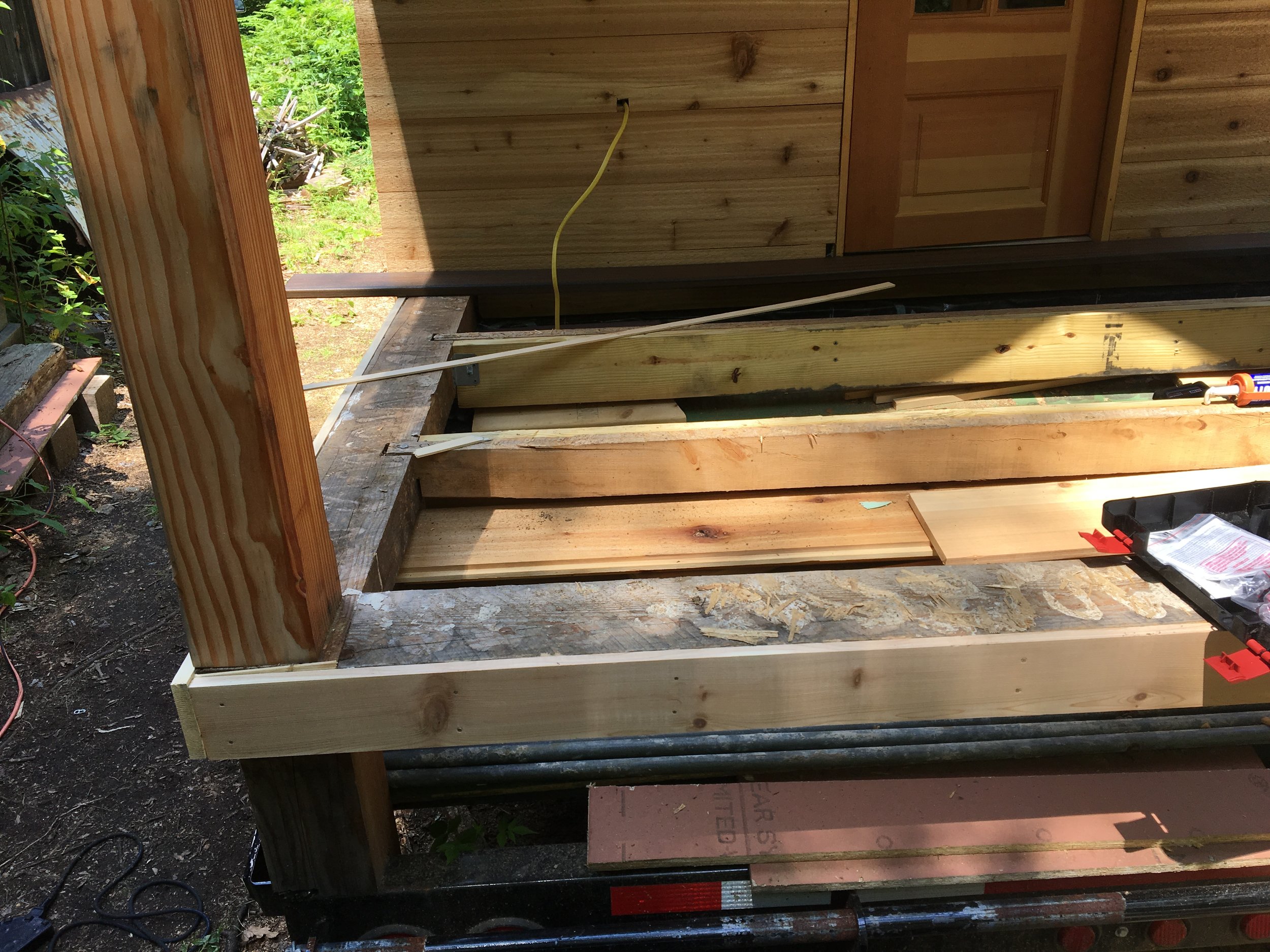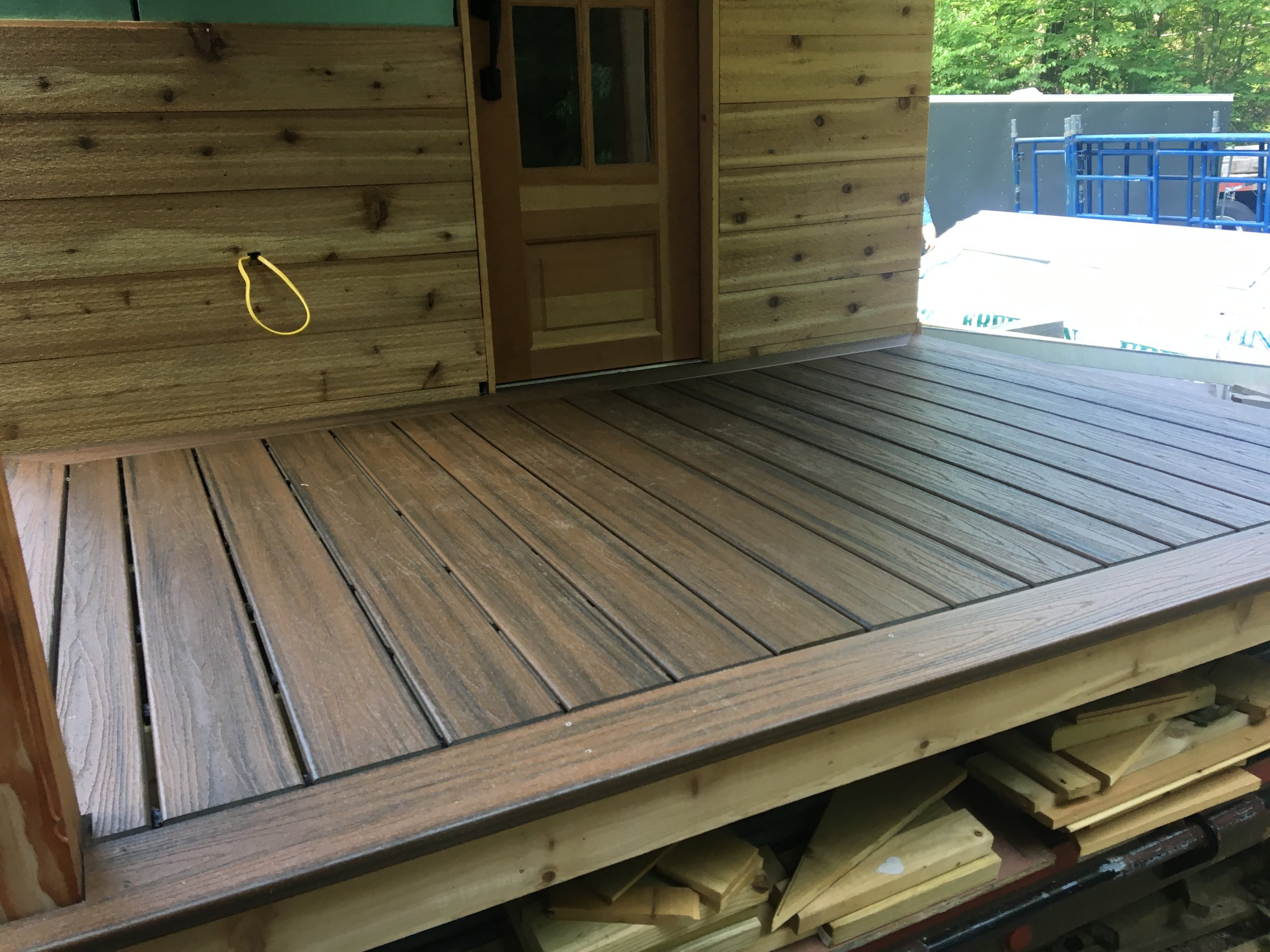New Porch Decking
We finally took the plywood off of the front porch and replaced it with beautiful compost Trex decking boards in a “spiced rum” color!
Trex composite decking is composed of 95% recycled wood and plastic, saving 400 million pounds from getting buried in landfills each year. They also have a remarkably eco-friendly manufacturing process, eliminating runoff, smoke stacks, and they use vegetable oil to run their machines. More information can be found at the Trex website: https://www.trex.com.
First we applied a clean, cedar trim around the hemlock sills of the timber frame, to soon after be overlapped with the Trex decking.
Before long, we realized we would need a bit more support than the two floor joists were going to give. The Trex is strong, durable, and heavy. Since our porch is only about 8’-6” x 5’-0” we decided that amount of weight would be ok to add to the overall composition of the house; however, we needed to add more floor joists.
We also decided to better support the two that had been put in when we raised the timber frame. They are supported by the sills, but are otherwise floating over the ramped portion of the trailer.
To do this we purchased some pressure treated 2x6s, hangers for the new joists, and steel angle braces to support the existing joists. The above photo shows the structure ready for the decking!
Our plan: I had drawn a sketch representing a picture-framed border with decking running perpendicular to the joists below. We accounted for all proper spacing, as well. Since the decking is made from recycled wood and plastic, it will significantly swell in the sun, so the spacing is CRUCIAL!
We picture framed around the doug fir posts at the front of the porch and will apply a trim to the bottom of the columns so that the Trex boards can expand and contract beneath the trim without visibly showing much of gap.
We began verifying the necessary lengths of the boards in the field and laying them out with Trex’s “hidden fastener” clip system.
The clips fit between grooves in the edge of the decking boards and you screw them down right in the middle space that is required for flexing and drainage. In the field you don’t see any screws! I thought this was a pretty slick and effective system.
Voila! What a fun weekend project this was.













